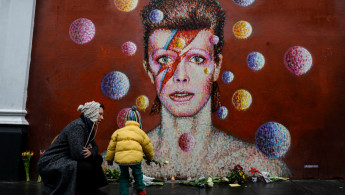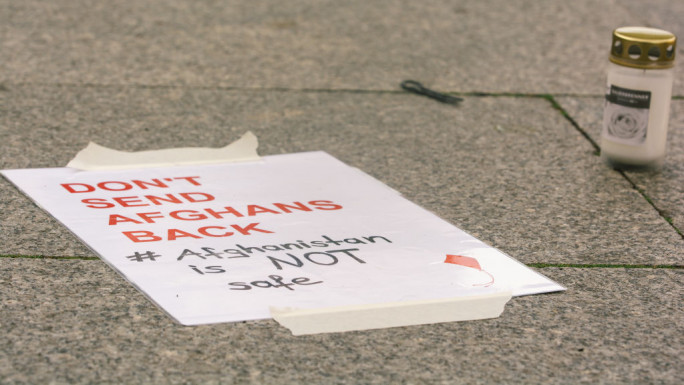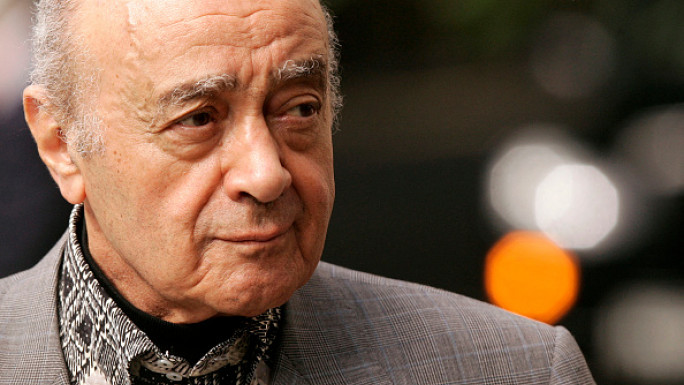David Bowie tributes paid around the world-and in space
Tributes are pouring in for British music superstar David Bowie, who died on Sunday after a long battle with cancer, with politicians, actors, clerics - and an astronaut - offering their recollections of the late Starman.
A notoriously private person, Bowie's death came as a shock to many, just days after releasing his 25th studio album, Blackstar, on his 69th birthday on Friday.
"David Bowie died peacefully today (Sunday) surrounded by his family after a courageous 18 month battle with cancer," said a brief statement posted to both his Twitter and Facebook accounts.
"While many of you will share in this loss, we ask that you respect the family's privacy during their time of grief," it added.
Bowie was greatly beloved around the world, not least in the Middle East. His bandmates had denied in the days before his death that songs from his final album had been inspired by the brutality of the Islamic State group.
His agent, Steve Martin, confirmed he had died and film director Duncan Jones, Bowie's son with his first wife Angela Bowie, confirmed the news on Twitter.
"Very sorry and sad to say it's true. I'll be offline for a while. Love to all," Jones wrote on his official account.
British astronaut Tim Peake tweeted his sadness from outer space aboard the International Space Station.
"Saddened to hear David Bowie has lost his battle with cancer - his music was an inspiration to many," Peake wrote on Monday.
Twitter Post
|
Tributes to a legend
The outer-space tribute seemed fitting. Unique and otherworldly, Bowie often seemed like a creature from another planet; a character from any of his 1970s hits.
The cosmos fascinated him from his first big hit, Space Oddity. Released in 1969, the year of the first moon landing, it told the story of Major Tom, an astronaut adrift, "sitting in my tin can, far above the world".
British Prime Minister David Cameron called Bowie a "pop genius" and "a master of re-invention, who kept getting it right".
Bowie produced much of his most celebrated work while living in Germany - a fact recognised on Monday by Germany's foreign ministry, which credited him with helping end the Cold War.
"Good-bye, David Bowie," the ministry tweeted. "You are now among heroes. Thank you for helping to bring down the wall."
Twitter Post
|
Twitter Post
|
Mayor of London Boris Johnson said: "No-one in our age has better deserved to be called a genius."
Archbishop of Canterbury Justin Welby told the BBC on Monday that he became a fan during Bowie's early rise to prominence.
"I remember sitting listening to his songs endlessly in the '70s particularly and always really relishing what he was, what he did, the impact he had," Welby said. "Extraordinary person."
Bowie's work spanned generations and genres alike.
"David Bowie was one of my most important inspirations, so fearless, so creative, he gave us magic for a lifetime," wrote musician Kanye West.
Twitter Post
|
US actor Val Kilmer called him a "searing genius" while Mark Ruffalo called him "father to all us freaks".
British comedian Ricky Gervais said he had "lost a hero", while fellow comic Eddie Izzard appealed on Twitter for his songs to be broadcast around the world - just for one day.
"Please could every radio station around the globe just play David Bowie music today - I think the world owes him that," Izzard wrote.
Twitter Post
|
Twitter Post
|
Look up here
"Look up here, I'm in heaven," sings Bowie in Lazarus, the last of his songs to be released in his lifetime.
The video was released three days before his death was announced on Monday morning.
It features him in a hospital bed with his eyes covered in bandages as he sings about being "free like a bluebird", adding: "Ain't that just like me?"
His new album, Blackstar, was Bowie's "parting gift", said Tony Visconti, who produced much of the star's music. "His death was no different from his life - a work of art."
His final album will undoubtedly now take on a greater significance for many, and will be the subject of analysis for years to come.
The record was described by AFP as "a dark work marked by tense instrumentation, a sense of dread and lyrics about mortality, the work is cast in a new light by the revelation of how ill he was when he created it".
The death brings the curtain down on one of the most acclaimed artists of modern British music.
His career spanned styles ranging from glam rock, New Romantic, Krautrock and dance music to alternative rock, jungle, soul and hard rock, underpinned by an astonishing array of stage personas from the sexually ambiguous Ziggy Stardust to the so-called Thin White Duke.
Bowie last performed in 2006 and was rarely seen in public, and it was unclear whether he died in his long-term home New York or his native Britain.
He was born David Robert Jones in Brixton, inner south London on January 8, 1947, before his family moved out to the leafy suburb of Bromley when he was six.
Master of re-invention
In the first of many re-inventions that were to make him a style icon, he named himself David Bowie in 1966 to avoid confusion with Davy Jones, lead singer with Beatles rivals The Monkees, and studied Buddhism and mime.
The 1970s - the decade that saw him dominate the British music scene and conquer the United States - brought forward a string of successful albums.
It began with the critically acclaimed Hunky Dory, continued with The Rise and Fall of Ziggy Stardust and the Spiders from Mars - whose hits included Starman and Suffragette City - followed by the rock album Aladdin Sane, the apocalyptic Diamond Dogs and a fling with so-called plastic soul, Station to Station.
He then switched gears once more, moving to Berlin to work with the electronic experimentalist Brian Eno producing a trio of albums - Low, Heroes and Lodger.
The 1980s saw him win over a new generation with Let's Dance, which yielded the hit singles China Girl and Modern Love, and a 1985 teamup with Mick Jagger for a cover of Dancin' in the Streets that helped to push the BandAid and LiveAid charity projects.
His chameleon-like ability to reinvent his image, drawing on everything from mime to kabuki theatre, was accompanied by a string of albums until heart problems curtailed his productivity in the 2000s.
Throughout his career he appeared in films in acting and cameo roles, from his striking appearance in the cult 1986 film Labyrinth to playing inventor Nikola Tesla in The Prestige in 2006.
He surprised the world by launching a surprise single Where are We Now? on his 66th birthday in 2013 after a decade of silence, recalling his days in Berlin in the 1970s and hailed by critics as a major comeback.
An innovator to the end, Bowie moved away from pop into a new jazz sound in his final album, Blackstar.





![gaza hospital [getty]](/sites/default/files/styles/image_684x385/public/media/images/04CAB42E-7AB3-4448-B45F-B0E1D7D43091.jpg?h=d1cb525d&itok=XYFJ5dpl)


